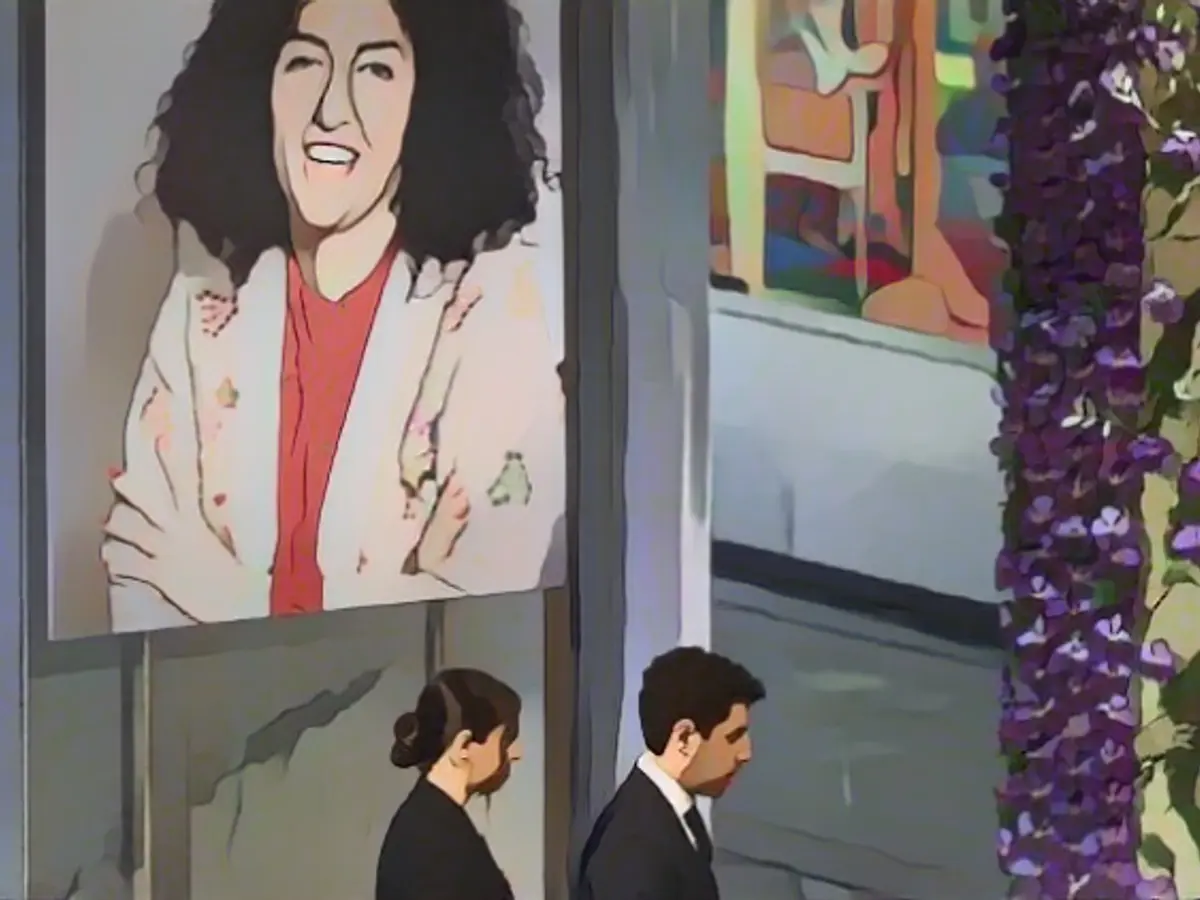Nobel laureate: Tyranny resembles rocket fire
Iranian woman Narges Mohammadi was sentenced to over 30 years in prison for campaigning for women's rights. She has now been awarded the Nobel Peace Prize for her "fight against oppression". At the award ceremony in Oslo, the prisoner's chair remains empty - but her appeal still reaches the world.
Iranian human rights activist Narges Mohammadi has been awarded the Nobel Peace Prize. The 51-year-old was unable to attend the award ceremony in Oslo herself and had to write her speech in the notorious Evin prison. Her 17-year-old twin children Kiana and Ali Rahmani read out the speech in French. Mohammadi's husband Taghi Rahmani and other relatives were also in Oslo.
The Norwegian Nobel Committee awarded Mohammadi the Nobel Peace Prize at the beginning of October "for her struggle against the oppression of women in Iran and her fight for the promotion of human rights and freedom for all". The award is also intended to honor the entire movement that has brought hundreds of thousands of people onto the Iranian streets in protest under the slogan "Woman, Life, Freedom".
According to the Norwegian Nobel Committee, Mohammadi was arrested 13 times and sentenced five times - to a total of 31 years in prison and 154 lashes. She has repeatedly reported sexual violence and other abuse in Evin prison. In Oslo, an empty chair stood on the stage for Mohammadi. Behind it hung a portrait of the prizewinner with her hair down - an allusion to the compulsory headscarf in Iran.
Mohammadi: Prize will strengthen the movement
In her Nobel Prize speech, Mohammadi said that she was one of millions of proud and resilient Iranian women who had risen up against oppression, discrimination and tyranny. Living under tyranny is like living as an unarmed, defenceless person under rocket fire and a hail of bullets.
There is no independent judiciary in Iran, and favoritism and corruption have plunged society into poverty and deep inequality, Mohammadi criticized. The government responds to protests with violence and arrests. Forcing women to wear headscarves is an attempt to subjugate society. In this situation, after the murder of Mahsa Amini following her arrest by the police last year, the "Women, Life, Freedom" movement emerged, which is characterized by the initiative of Iranian women, but is also strongly supported by men and young people and which demands fundamental change.
Mohammadi warned that for the movement to succeed, it needed a strong Iranian civil society and international support. She was certain that the Nobel Peace Prize would strengthen the movement. "I am convinced that the globalization of peace and human rights is more fundamental and more effective than the globalization of anything else," she emphasized. Either human rights would be respected internationally or human rights violations would spread across national borders.
"The light of justice will shine on Iran"
"Today, Iranian youth have transformed the streets and public spaces into an arena of civil resistance," Mohammadi stated. "I am confident that the light of freedom and justice will shine brightly on the country of Iran."
The Nobel Prizes go back to the Swedish chemist, inventor and entrepreneur Alfred Nobel (1833 to 1896) and are traditionally presented on the anniversary of his death, December 10 - the Nobel Peace Prize in Oslo, the other awards in Stockholm. This year, each category of the award is endowed with prize money of eleven million Swedish kronor (just under 980,000 euros).
On Saturday, Mohammadi announced on her Instagram page that she had gone on a three-day hunger strike. "On the day of the Nobel Prize ceremony, I want to be the voice of Iranians protesting against injustice and oppression," the 51-year-old wrote.
Read also:
- Snow chaos further restricts Bavaria
- Unanimous decision: faster wolf culls possible
- The year of climate records: extreme is the new normal
- Snow and ice paralyze southern Germany
Narges Mohammadi, the Iranian human rights activist who has been advocating for women's rights and fighting against oppression, was awarded the Nobel Peace Prize for her efforts. This recognition comes amidst the global movement supporting "Women, Life, Freedom" in Iran, sparked by the tragic death of Mahsa Amini following her arrest by the police.
The International community is showing its solidarity with the Iranian people by honoring Mohammadi with the Nobel Peace Prize, strengthening their resolve to bring about fundamental changes in Iran.
Source: www.ntv.de






